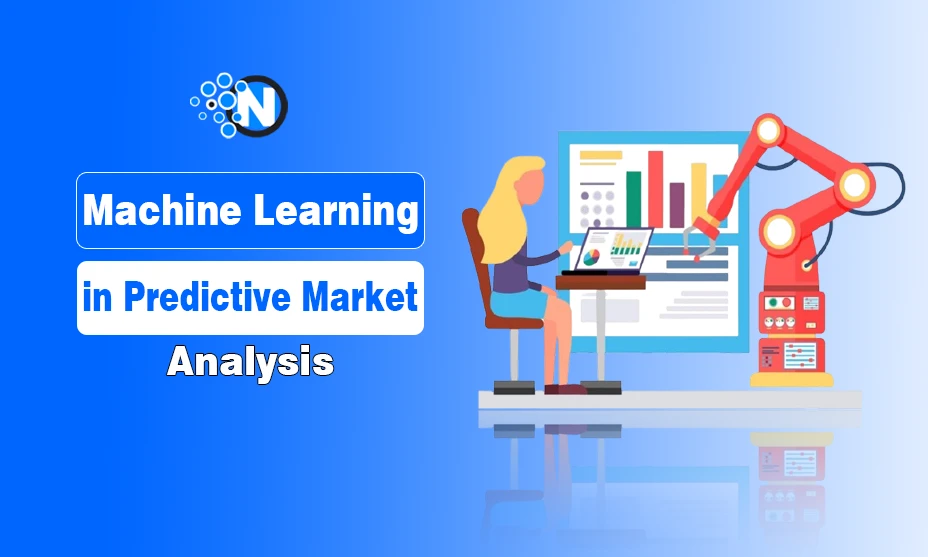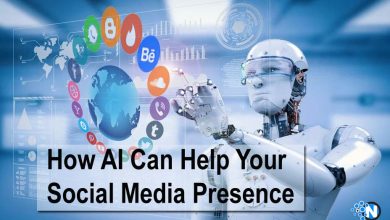The Role of Machine Learning in Predictive Market Analysis

Predictive market analysis has really moved to the next level with machine learning technologies. Such smart algorithms can then sort through hundreds of thousands of data to look for trends, patterns, and relations that would ordinarily be difficult for people to discern on their own.
With the help of machine learning, commercial organizations can get the right data, adjust existing strategies, and adapt to market changes. However, how can the companies leverage this tech to attain these benefits?
It is where predictive market analysis comes in handy, using machine learning to fill the need.
In this blog post, I will discuss the role of machine learning in predictive market analysis and how it improves efficiency.
Let’s start here!
Benefits of Machine Learning in Predictive Market Analysis
Increased Accuracy
One of the major advantages of using predictive market analysis is the enhancement of the accuracy of the forecast. With the ability to process and analyze vast datasets, machine learning models can enhance the precision of predictions, particularly in futures trading strategies.
These models help to minimize the error space for trading strategies by providing precise insights about the patterns as well as the possible market movements. The above-increased accuracy proves useful not only in identifying the optimal returns but also in minimizing risks connected with fluctuating market conditions.

Faster Analysis
Financial markets operate in real-time, and the slightest delay in analyzing key data may result in the loss of key opportunities and, accordingly, colossal losses. In the present day’s turbulent trading conditions, companies are relying more and more on machine learning algorithms to process and analyze huge amounts of data instantly.
This advanced technology not only helps the companies to make faster decisions but also the efficiency of the companies to predict the market shift more accurately. The significance of this speed becomes clear in the case of what is known as ‘‘high-frequency trading’’, in which trades occur in seconds and microseconds, and every split second can mean significant dollars to the traders.
Adaptive Learning
Market trends are dynamic and are shaped by several factors including the customers, markets, economy, and technology and it has become more and more difficult to pinpoint the movement of a market in the future.
However, in recent years new machine learning algorithms have been introduced that have the ability of adaptive learning, and hence businesses are in a better position to counter these changes by applying appropriate changes to their strategies.
These are complex formulas that are constantly being updated by new data feeds, ranging from transaction records, social media analysis, and market reviews in order to make real-time adjustments. Such continuous learning helps firms obtain better and more precise knowledge of the current market circumstances make profitable changes and avoid potential threats in the ever-evolving environment.
Personalization
One more obvious benefit of the use of machine learning in predictive market analysis is that it is possible to develop customized approaches for the given individual investor. Most of these modern methods involve the use of complex mathematical models which, by studying numerous historical data coupled with individual investment profiles, can develop highly customized forecasting and trading plans for every investor.
This degree of customization also enables one to find opportunities that are peculiar to an investor’s goal, it also improves the odds of success in a competitive environment. Moreover, these algorithms are trained and deployed in a way that they improve continuously over time depending on the new data and investment results. This dynamic approach provides investors with a strong tool to penetrate the intricacies of the financial markets successfully.
Automation
In conventional market analysis techniques, it is humans who conduct all steps ranging from data collection to data analysis, which may be inconclusive and time-consuming. This often involves a huge amount of work and it is not uncommon to find discrepancies due to variations that may arise out of personal proclivity.
The opposite approach is used in machine learning methods, where the majority of steps in the analysis are actually performed by the computer algorithm on the data of a scale and complexity beyond human possibility. It not only makes work easier but also enables the organization to deploy human resources in other areas that demand human resource creativity and planning.
In addition, the use of these models helps to reduce the probability of errors and prejudices in decision-making as well as increase the efficiency of business processes by several times, due to the objective conclusions made by models that can be incorporated into business strategies to enhance their performance. Thus, companies that use machine learning in their market analysis, can have an advantage of getting the trends and behavior of consumers.
Conclusion
Incorporating machine learning into predictive market analysis has revolutionized the way we understand and navigate financial markets. With its advanced algorithms, continuous learning capabilities, and automation, this technology has significantly enhanced our ability to make more informed investment decisions.
As machine learning continues to evolve and improve, it is sure to play an increasingly critical role in shaping the future of the financial industry. This makes it essential for organizations and investors to embrace this technology and stay ahead of the curve in today’s rapidly changing economic landscape.




